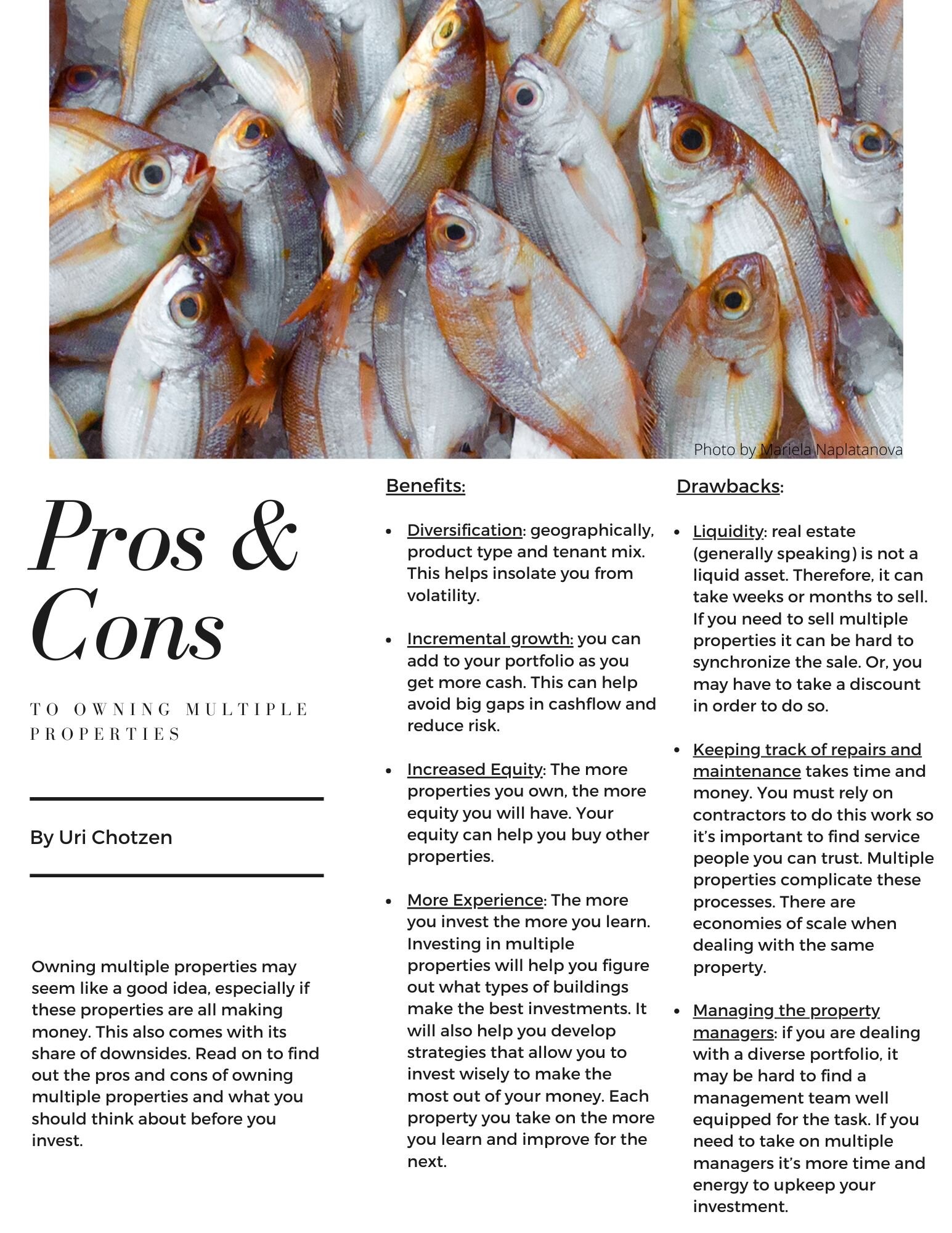Pros and Cons to owning Multiple Properties
/
Pros and Cons to owning Multiple Properties:
If you are an investor, you invest. That’s why many real estate investors are likely to own multiple properties.
Owning multiple properties may seem like a good idea, especially if these properties are all making money. However, they also come with their share of downsides.
Read on to find out the pros and cons of owning multiple properties and what you should think about before you invest.
Benefits to owning multiple properties:
· You are diversified; geographically, product type and tenant mix. This helps insolate you from volatility.
· Incremental growth; you can add to your portfolio as you get more cash. This can help avoid big gaps in cashflow and reduce risk.
· Increased Equity: The more properties you own, the more equity you will have. Your equity can help you buy other properties.
· More Experience: The more you invest the more you learn. Investing in multiple properties will help you figure out what types of buildings make the best investments. It will also help you develop strategies that allow you to invest wisely to make the most out of your money. Each property you take on the more you will learn and improve for the next.
Cons
· Liquidity: real estate (generally speaking) is not a liquid asset. Therefore, it can take weeks or months to sell. If you need to sell multiple properties it can be hard to synchronize the sale. Or, you may have to take a discount in order to do so.
· Keeping track of repairs and maintenance takes time and money. You must rely on contractors to do this work so it’s important to find servicepeople you can trust. Multiple properties complicates these.
· Managing property managers: if you ae dealing with a diverse portfolio, it may be hard to find a management team well equipped for the task. If you need to take on multiple managers it’s more time and energy to upkeep your investment.



